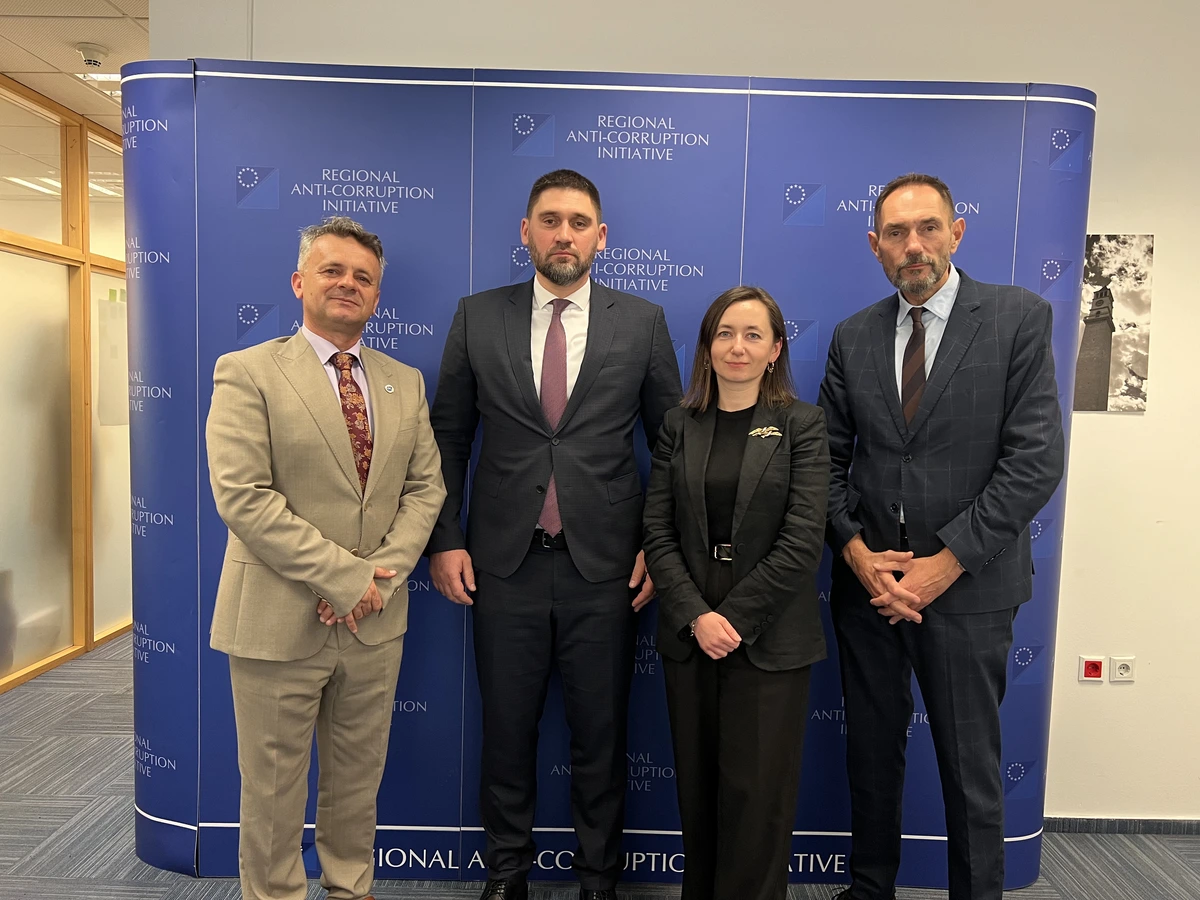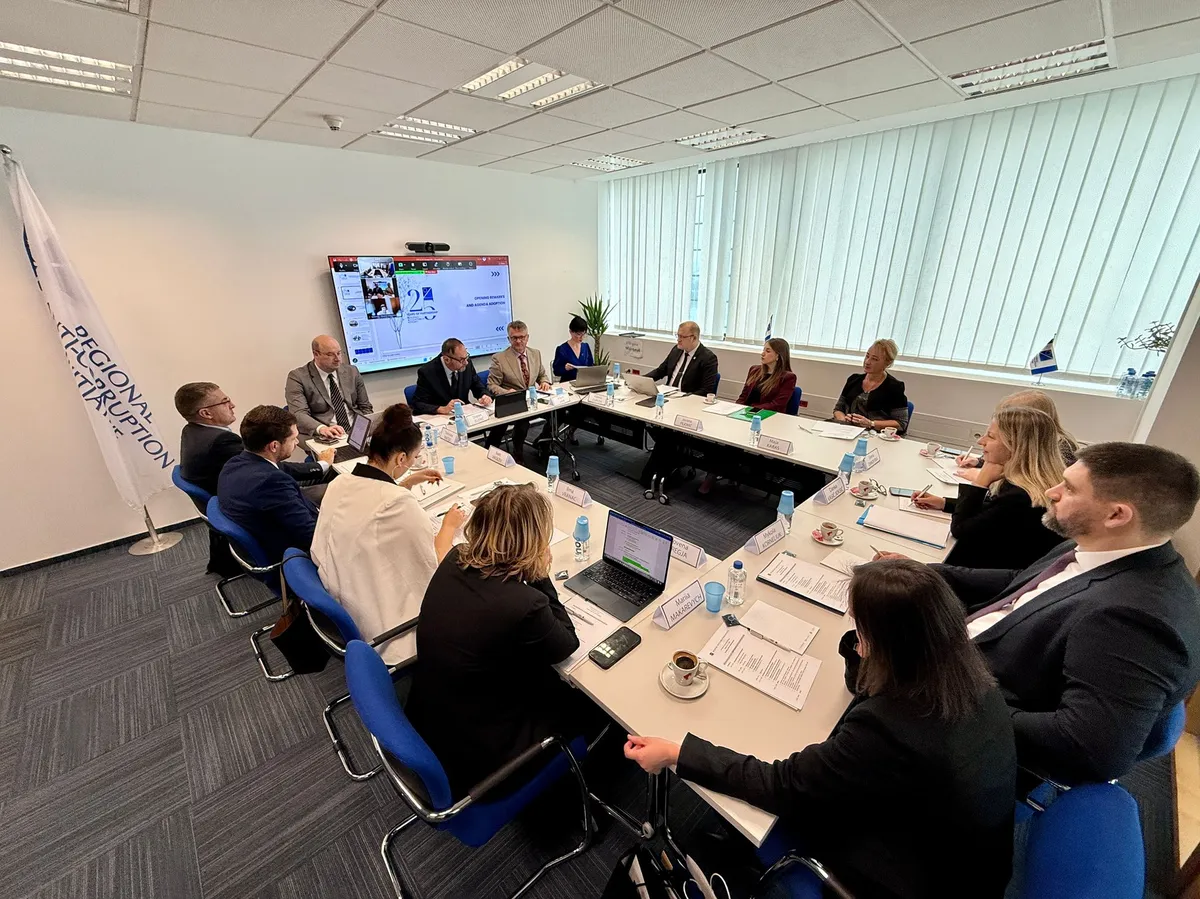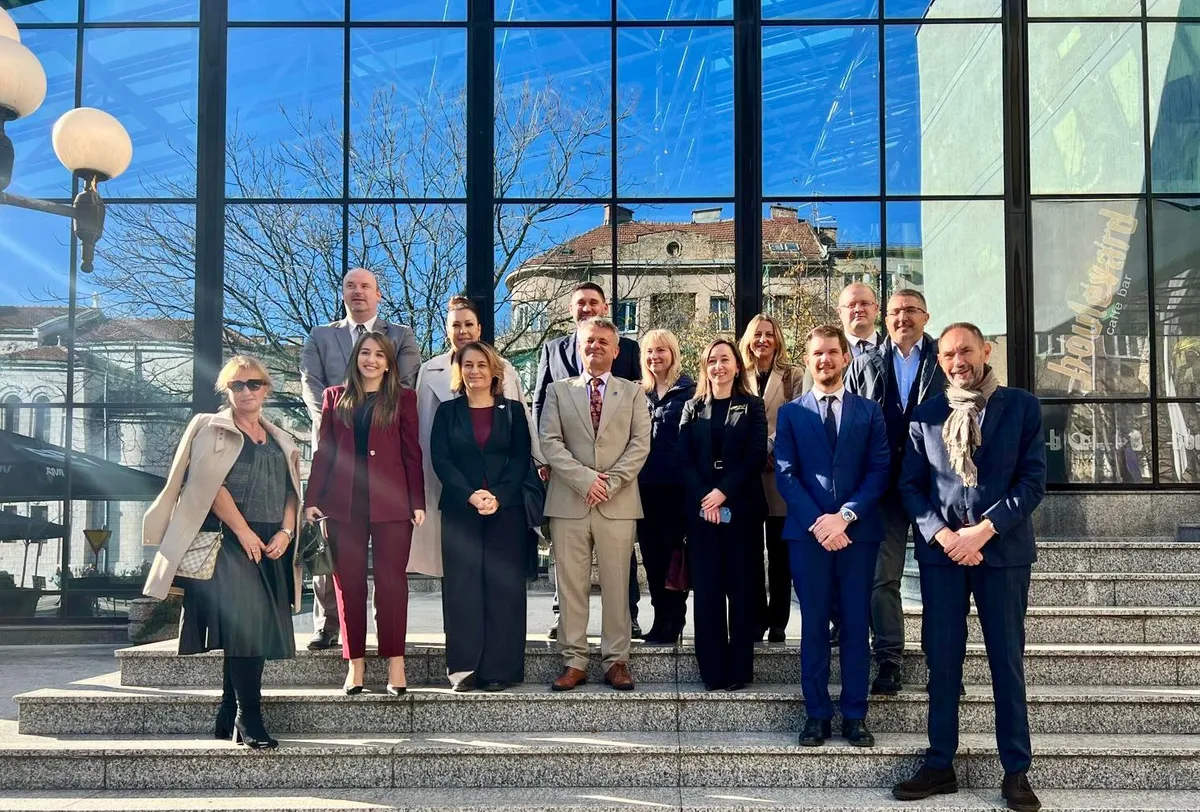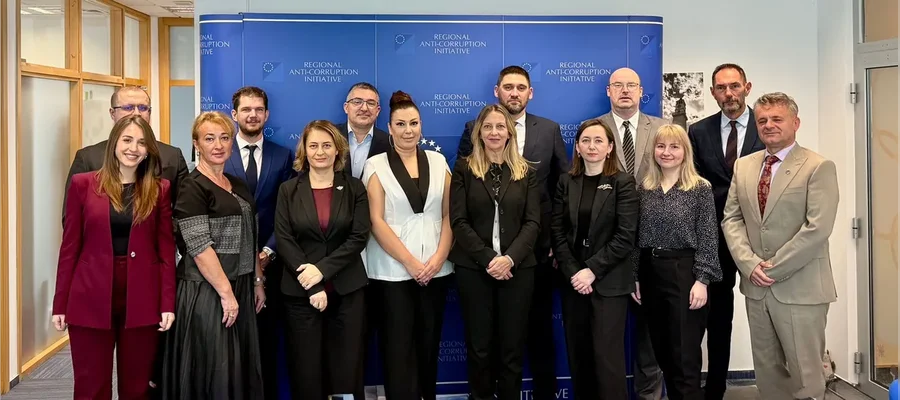
Deputy Head of the National Agency on Corruption Prevention (NACP) Mykola Korneliuk took part in the 47th meeting of the Steering Group of the Regional Anti-Corruption Initiative for South-Eastern Europe (RAI), dedicated to the 25th anniversary of the organization’s establishment. The event brought together representatives of member states and partners to discuss achievements and priorities in promoting integrity, transparency, and accountability across the countries of South-Eastern Europe.
The Deputy Head of the NACP presented to partners the results of systemic anti-corruption measures implemented by the Agency over recent years. Key achievements include the introduction of the Information System for Monitoring the Implementation of the State Anti-Corruption Program (ISM SACP), the development of a digital integrity ecosystem that now unites seven interconnected IT solutions (including the Unified State Register of Declarations, the Unified Whistleblower Reporting Portal, POLITDATA, and the Transparency Register), as well as the strengthening of financial control and lifestyle monitoring mechanisms. These efforts have made it possible to identify and transfer over USD 43 million in unjustified assets for recovery through the High Anti-Corruption Court and to hold dozens of high-ranking officials accountable.
“Despite the full-scale war, Ukraine continues to demonstrate progress in preventing and combating corruption. We have proven that even under extraordinary conditions, transparency, accountability, and digitalization can remain the foundation of public policy. Ukraine became the first country in the world to digitize the implementation of its anti-corruption program — a practice recognized internationally. Recently, we received an award from the Open Government Partnership for exceptional achievements in the field of transparency,” said Mykola Korneliuk.
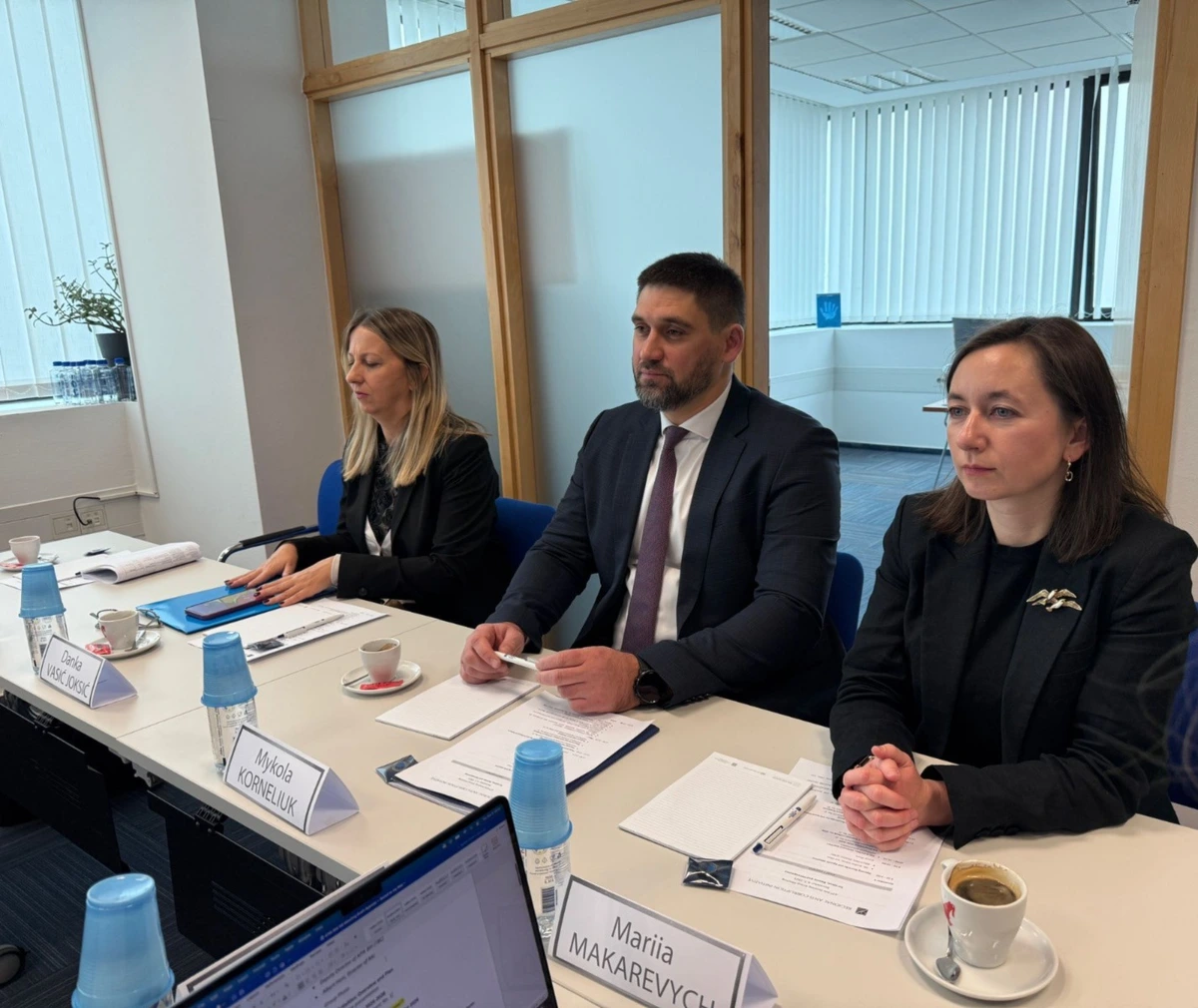
He emphasized that in 2025 the NACP began developing a new Anti-Corruption Strategy for 2026–2030, which will focus on strengthening the strategic foundations of anti-corruption policy and introducing targeted preventive measures in sectors with the highest corruption risks.
The meeting participants reviewed the activities of RAI member states in 2025 and the results of the RAI Secretariat’s work, discussed the work plan for the upcoming period, progress in implementing regional projects, and priorities and opportunities for cooperation with partner organizations.
RAI Director Albert Hani emphasized the importance of continuing regional cooperation and commitment to shared values:
“Our strength lies in partnership and trust. By working together, we can make anti-corruption efforts in South-Eastern Europe more effective, sustainable, and impactful,” he stressed.
Background
The Regional Anti-Corruption Initiative (RAI) is an intergovernmental organization uniting nine South-Eastern European countries: Albania, Bosnia and Herzegovina, Bulgaria, Croatia, Moldova, Montenegro, North Macedonia, Romania, and Serbia. The organization promotes integrity, experience exchange, and the implementation of anti-corruption reforms in the region. Since December 2023, the NACP has held observer status in RAI, enabling participation in Steering Group meetings and the development of joint regional solutions.
Within the RAI framework, a multilateral agreement on information exchange for asset declaration verification has been developed. This agreement establishes the legal basis for direct administrative data exchange among anti-corruption authorities of participating states. The document aims to strengthen the integrity of public service through transparency of financial interests of officials and detection of hidden assets abroad. It complies with international transparency standards set by the UN Convention against Corruption and the G20 High-Level Principles on Asset Disclosure. Currently, four countries have joined the agreement.
Ukraine is interested in joining this agreement. Its signing will enhance the effectiveness of asset declaration verification, detection of hidden assets abroad, and expansion of regional cooperation in asset disclosure.
